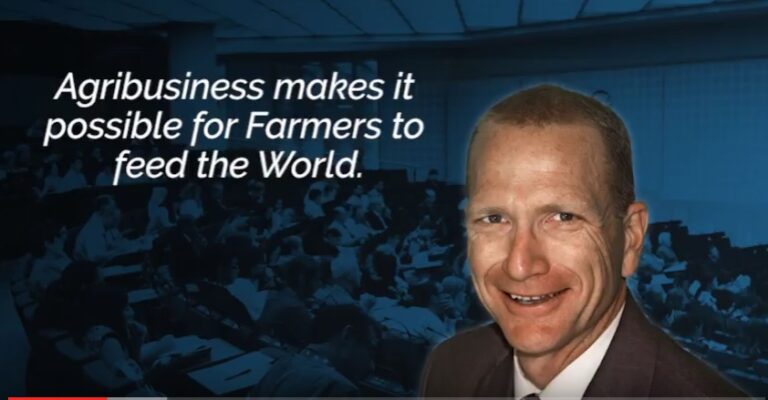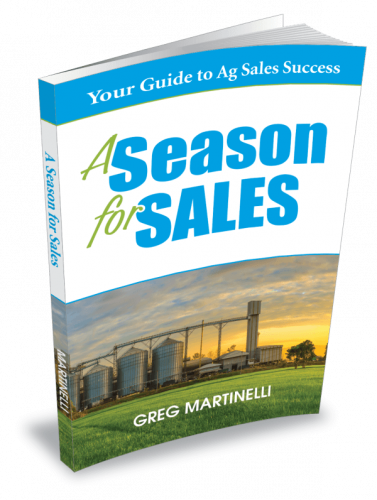Or is it all about price?
The idea for today’s article occurred many years ago as I tried to differentiate myself from all the other salespeople calling on my customers. I sold in the B2B (business to business) industry of selling to farmers and feed dealers.
You might think that in business-to-business selling, it would be all hardnosed negotiation styles of purchasing and everything would come down to the bottom-line pricing. And sure, there were those sales. However, I also realized that even B2B buyers prefer to buy from a salesperson or a company that has better customer service.
Customers, that includes farmers, Ag retailers, feed dealers, and even big box store buyers want to do business with vendors that are easy to buy from. Early in my selling career, I decided I would do the following:
- I would answer my phone unless I was in front of a customer. If it went to voicemail, I would immediately call the customer back.
- Make paperwork and processing flow as fast and smooth as possible, with 100% transparency. Accurate invoicing and account information are of the highest importance for any business. This is critical to building trust with your customers. They get what they order when they order it, and at the correct price. And, they pay for it at the agreed upon terms. Did we get it right all the time? Of course not, but that’s when they realized I wasn’t going to avoid them or the situation when the process broke down.
- Remember that I am only one part of my customers business. They have other vendors and hopefully a big base of customers they have to worry about. Don’t make their life more difficult when they decide to buy from you.
While customer service is closely aligned with sales, some experts focus solely on customer service and the customer experience. As part of the speaking industry, I have met some of the greatest speakers on the subject.
David Avrin wrote the book, “Ridiculously Easy to Do Business With: A practical guide to giving customers what they want–when and how they want it”. He’s an author, a great speaker on the subject, and thought leader on how businesses can use customer service to set themselves apart. The title alone tells you what it takes to keep customers.
Shep Hyken, based in St. Louis was a member of the NSA chapter (national speakers association) that I was in for many years. Shep is a legend in the customer service industry, speaking and writing books as well. His latest study is what inspired me to put my thoughts together on this subject for the Ag sales professional. State of Customer Service and CX Study
Most customer service speakers write and speak with analogies from highly transactional style selling. This might be wait staff at a restaurant, a hairdresser shop, cab/uber drivers, or the counter salespeople at a department store. Typically, I didn’t pay much attention because the analogy did not resonate with the long-term selling relationship we have when selling in agribusiness. After all, we take months to years of calling on a producer or feed store owner before we finally make a sale. Then, we grow that relationship with weekly or monthly sales calls for years.
These are not transactional-based sales. They are relationship-based sales with years of trust behind them. How could our order desk being nice on the phone make a difference? These are spreadsheet-driven bottom line buyers who just want the lowest price. Well, maybe, but maybe not.
Here are a few observations I took from Shep Hyken’s State of Customer Service and CX Study (https://www.Hyken.com/research).
- 85% of customers are willing to go out of their way to do business with a
company that has better customer service. (Last year it was just 76%.)
- 81% of customers prefer companies that offer a personalized experience.
Personalization has always been important, but difficult to master for many
companies and brands.
- Customer Experience Makes Price Less Relevant
- Half of American Consumers Think Service Is More Important than Price
- If a Great Experience Is Guaranteed, 59% said they would pay more
- 51% of those surveyed said service is more important than price
- 70% are willing to pay more for convenience
Again, I want to caution that you can write these off as surveying transactional B2C (business to consumer) style sales. However, any buyer is a consumer and I look at the similarities in this sale versus the difference. As mentioned, in their analogies, they might be talking about restaurant service or the hotel staff that takes your reservation and checks you in. The similarity in these analogies with our industry is the concept of selling a commodity. Think about how commoditized restaurants, hotels, or car rental companies are. They are all together on one corner of every town or at one long counter space in the airport. All of them screaming that their product is better. I don’t care how good your chicken sandwich is, I’m not waiting 45 minutes for it.
Now, let’s look at our industry. I like to ask sales training groups, “How many places can a farmer buy your exact product in your market?”. “How many places can they buy a red tractor or a green one in this market?” If it’s agronomy teams, “How many seed dealers are in your market? How many of them sell the exact same brand/genetics?” And every time, the answer I get from the audience is, “Too many”.
So then, with all those places to buy from, how does a producer decide? I think a big part of that answer is in customer service.
Digging into the Farm Journal’s yearly study of “How, What, and Where farmers buy inputs”, we find that customer service isn’t the only factor, but a big one. Here are some of their findings:
- Only 20% of producers are buying online or direct from a wholesaler. Versus 80% buying from an Ag retailer. The direct or online supplier is generally cheaper as a cost per unit. Yet, producers still prefer to work with a live person with a local presence.
- Price can’t be ignored as the highest percentage of online purchases were in the seed and seed treatment products, which are the higher per acre costs in crops.
In summary, price is a part of every sale. After all, that is one of the three components of value (time, money, emotion). And producers are good at telling us it’s the only factor they look at. However, the results of these surveys and my own experience tell me there is much more to the purchasing decision than cost per ton.
To get your thoughts going, ask yourself a few of these questions. Maybe discuss them as an employee group including sales, service, and some department leaders. If you really want some feedback, ask your customers.
- How easy are we to do business with? Compared to our competition? Compared to other businesses that serve our customers?
- How transparent are our order, delivery, and accounting systems to our customers? Do they know how and when orders are being processed? From the order to the invoice, is it easy for them to follow what is going on with their purchase?
- How do we “listen” to our customers? Meaning, how do we gather feedback, and then how do we use it?
- What’s the most difficult aspect of doing business with us? What takes the longest? What is the most confusing? And most importantly, what is the impact of that on the customer?
And with all of those questions, listen to the answers with an open mind and ask, “Who does it better, or best?”
If you are still not convinced about customer service just remember the “Dominoes concept”. Did they solve for tasty pizza? Of course not! They solved for convenience (quick). From well over an hour to get a pizza to, the Dominoes guarantee of “30 minutes or less or it’s free!”, which they don’t even do anymore.


